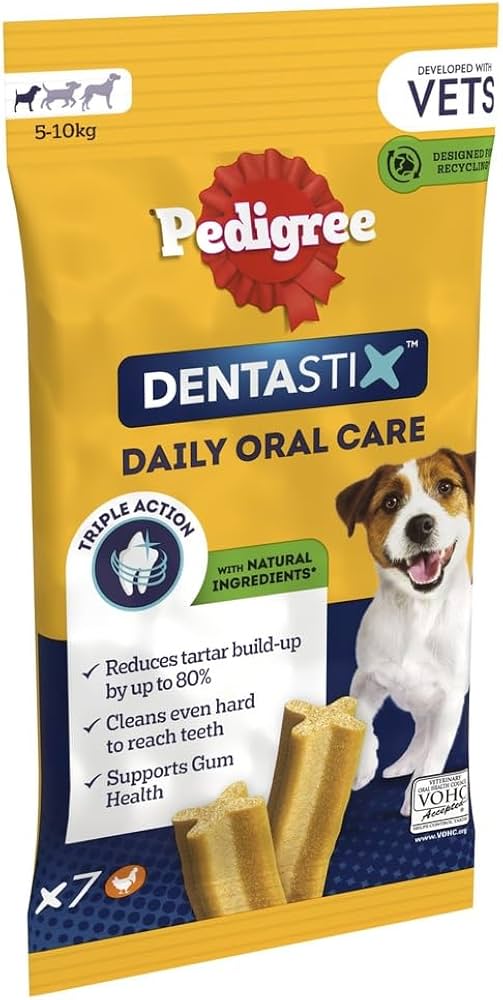Maintaining your dog’s oral hygiene is crucial for their overall health and well-being. While regular brushing and professional cleanings are essential, dental chews can play a significant role in reducing plaque and tartar buildup between veterinary visits. This guide, curated by a panel of veterinarians, highlights top-rated dental chews that are not only effective but also palatable and easily digestible for your canine companions. Learn more about the benefits of dental chews.
How We Selected the Best Dog Dental Chews
The selection of the best dental chews for dogs was a rigorous process undertaken by Chewy’s in-house veterinary panel. These experts leveraged their extensive knowledge and practical experience, alongside a thorough review of manufacturer information, to evaluate various products. Key criteria included the presence of the Veterinary Oral Health Council (VOHC) seal of acceptance, the quality of ingredients, and proven effectiveness in reducing plaque and tartar.
The opinions and recommendations presented in this article are solely those of the veterinary and animal health experts on our review panel. Their evaluations are independent, meaning manufacturers and vendors cannot influence product placement or the panelists’ assessments. Our primary objective with this program is to empower pet parents with the reliable information needed to make informed decisions for their pets’ health.
Top Dog Dental Chew Recommendations
While various options are available, certain dental chews stand out for their efficacy and veterinary approval.
Purina Pro Plan Veterinary Diets Dental Chewz
These dental chews are highly recommended by our veterinary panel due to their scientific backing in reducing tartar and plaque. They proudly carry the VOHC seal of acceptance, signifying their proven effectiveness. Pet parents will appreciate that these chews are long-lasting, high in protein, and easily digestible, making them a beneficial addition to your dog’s routine.
Dog Dental Chew FAQs
Q: What constitutes the best dental chew for dogs?
A: The ideal dental chew for dogs typically possesses the VOHC seal of acceptance, indicating its safety and efficacy in reducing plaque and/or tartar. It should also avoid ingredients that might trigger food sensitivities in your dog. Consulting with your veterinarian is essential to ensure the chew meets your dog’s specific dental health needs. Lastly, the chew should be appealing to your dog in terms of texture, size, shape, and taste.
Q: Do dog dental chews provide tangible benefits?
A: Yes, dog dental chews encourage the natural, abrasive action of chewing, which helps to reduce plaque and tartar accumulation. Dental chews bearing the VOHC seal of acceptance have undergone scientific validation and are proven to effectively reduce tartar and plaque, thereby contributing to the prevention of gingivitis. However, it’s important to remember that these chews are not a substitute for professional teeth cleanings.
Q: What is the recommended frequency for giving a dog a dental chew?
A: For most dog dental chews, a once-daily serving is recommended. This should be considered as part of your dog’s optimal daily calorie intake. Always refer to the specific instructions on the product packaging and consult with your veterinarian to determine the best serving recommendation tailored to your dog’s individual dental and caloric requirements. Treating a cut on your dog’s paw pad is also important for their overall health.
Conclusion
Choosing the right dental chew can significantly contribute to your dog’s oral health and overall well-being. By opting for veterinarian-recommended products with the VOHC seal, you can help manage plaque and tartar, supporting a healthier smile for your furry friend. Remember to integrate these chews into a comprehensive dental care plan that includes regular brushing and professional veterinary check-ups.

